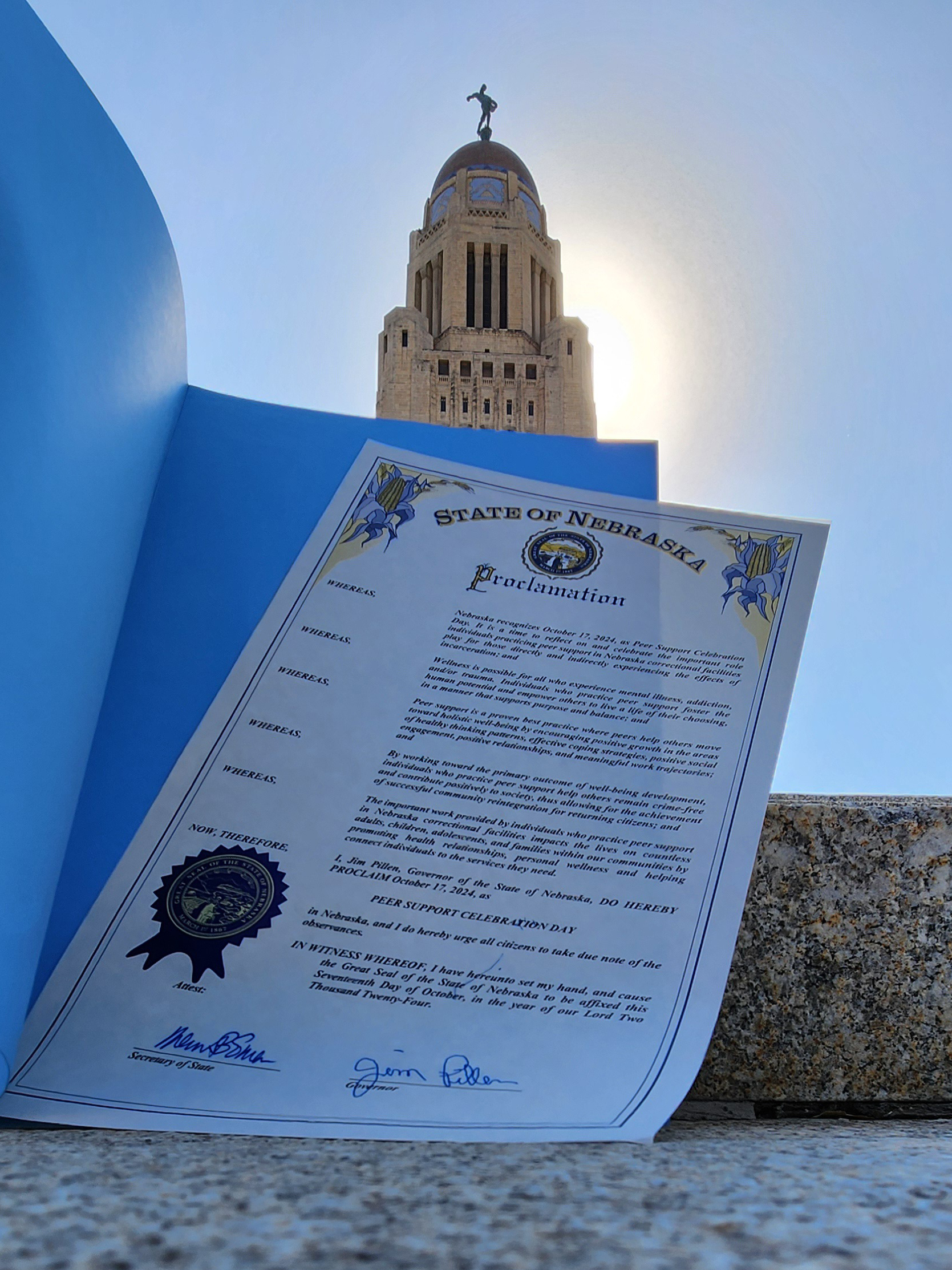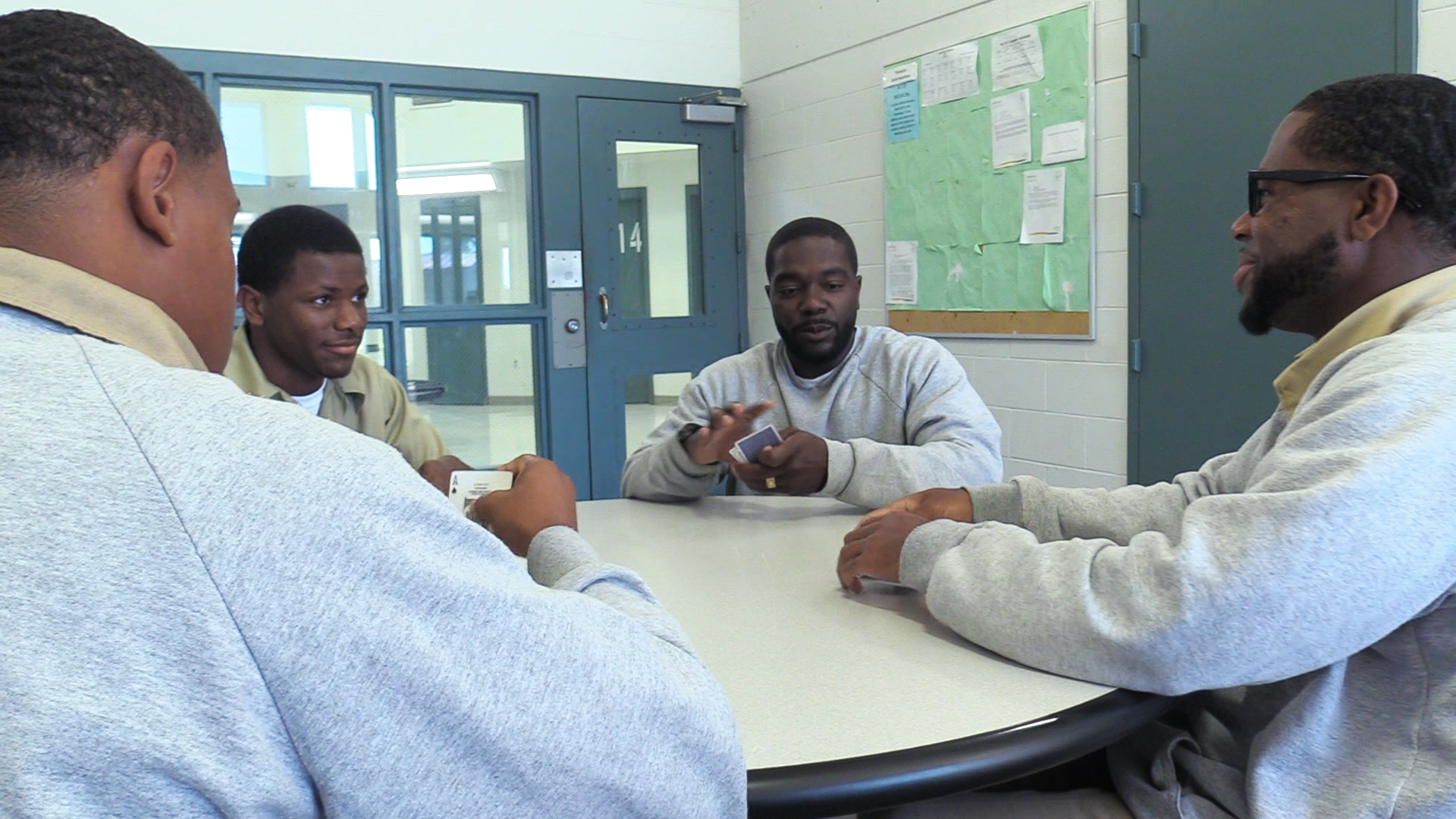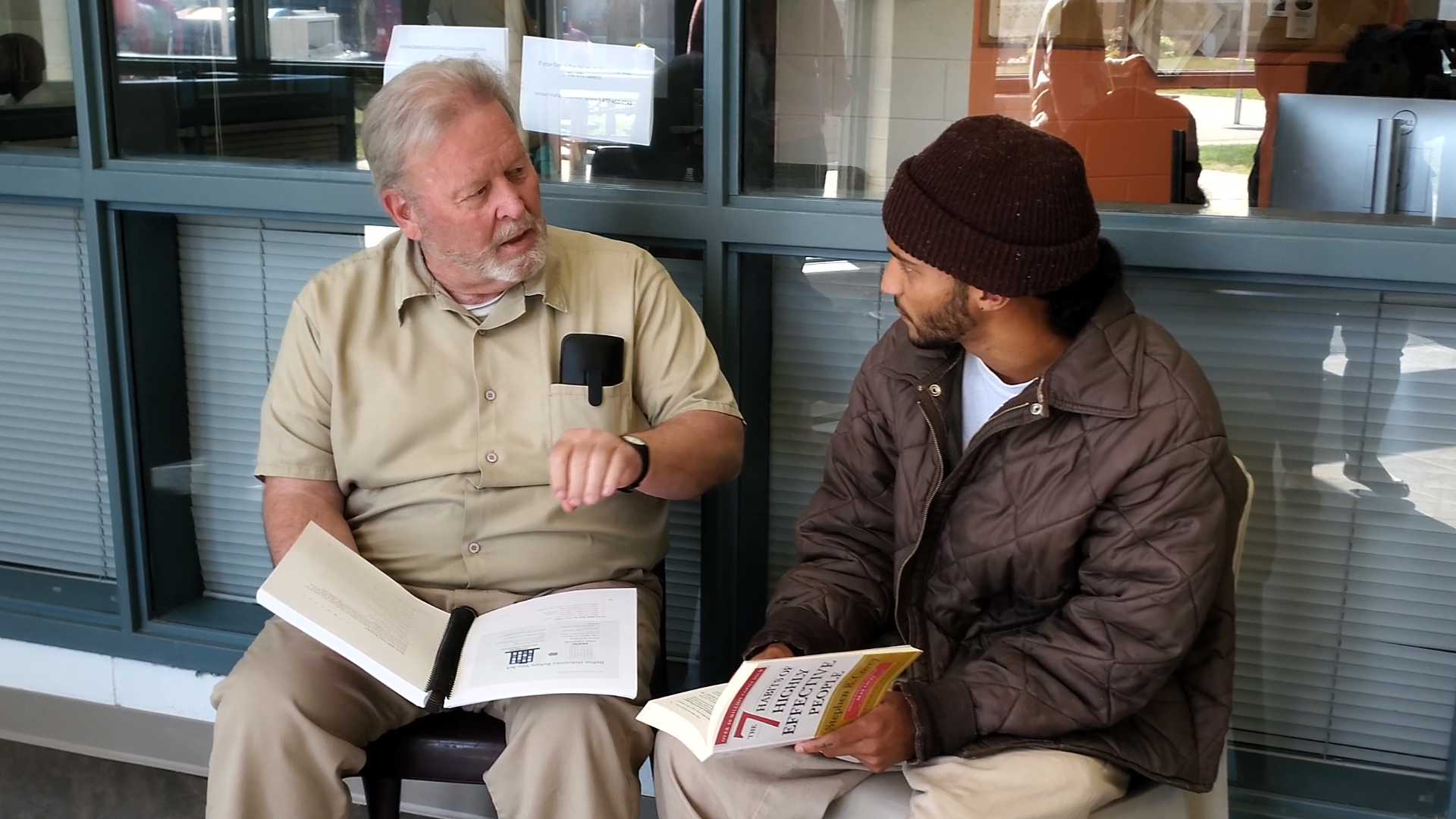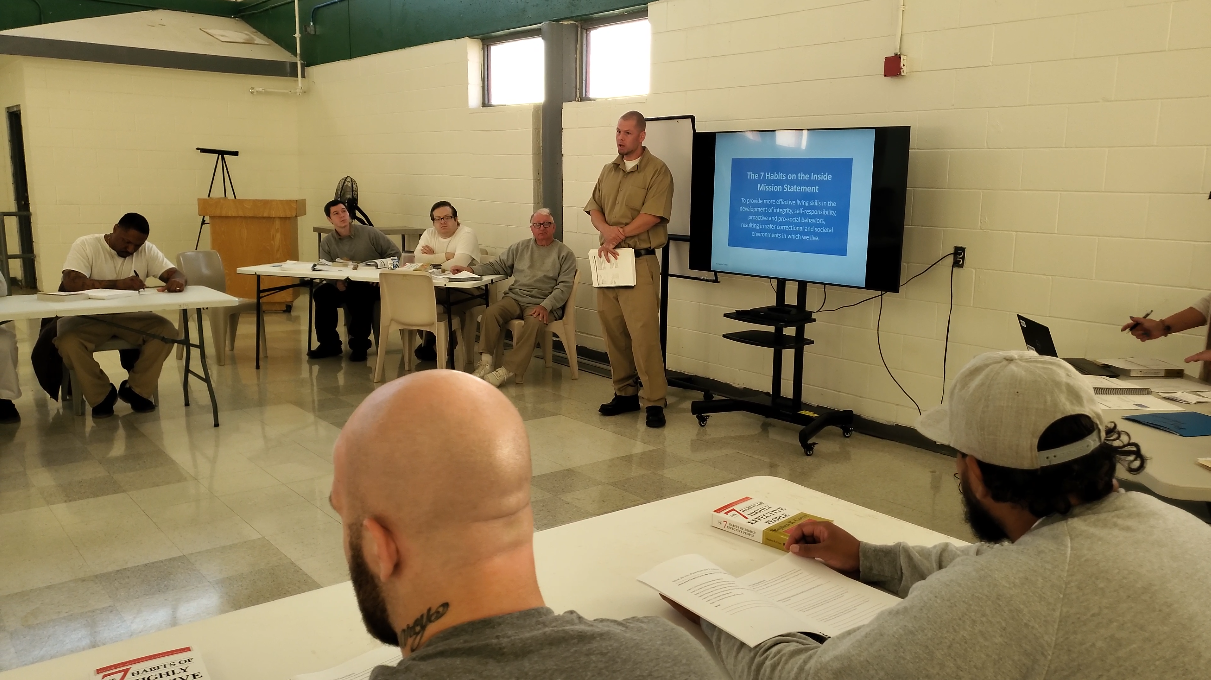FOR IMMEDIATE RELEASE (23-67)
CONTACT Dayne Urbanovsky, Director of Strategic Communications
OFFICE 402-479-5799 | dayne.urbanovsky@nebraska.gov
October 19, 2023 (Lincoln, Neb.) – Nearly 200 individuals serve in peer support or facilitation roles at Nebraska Department of Correctional Services (NDCS) facilities. They provide support to peers during incarceration and as they prepare for successful reentry to the community. In recognition of their invaluable role in rehabilitation, Governor Jim Pillen has proclaimed October 19 as Peer Support Celebration Day.
“Peer support is an emerging best practice that has proven to be an effective tool in supporting a person’s overall mental health and wellness,” said Deputy Director Dawn-Renee Smith. “Individuals practicing peer support are well-trained. They don’t counsel, mentor or advise, they use their lived experiences to encourage, engage with and support others as they move toward wellness and health.”
Intentional Peer Support (IPS), facilitated by the Mental Health Association of Nebraska, was first introduced at the Nebraska State Penitentiary in 2018. Today, more than 100 incarcerated individuals are currently trained to be IPS specialists at NDCS facilities. Incarcerated IPS specialists are paired with individuals who have similar experiences as a way to tackle issues related to mental health, addiction, trauma and other life challenges.
“IPS is based on hope,” said Michael Jackson, an IPS specialist at the Nebraska Correctional Youth Facility. “It’s building relationships and connection with individuals, and I think that a lot of individuals need that.”
Incarcerated IPS specialists undergo an application process, interviews and extensive training. Upon graduation, they are equipped to walk alongside their peers in a way that enriches both individuals. As trust in the relationship builds, both people are able to challenge each other to see things from new angles, develop greater awareness of personal and relational patterns and support one another in trying new positive behaviors without the constraints of an expert/client relationship.
In addition to IPS, more than 90 incarcerated individuals also serve as peer facilitators for NDCS cognitive behavioral programming.
“Programming is a key component of our efforts to keep people safe and promote different individual outcomes,” Smith said. “Peer facilitators have built-in credibility based on their shared experiences. When they deliver programs alongside staff members, it enhances learning for program participants and fosters a culture of collaboration.”
Program facilitation training is provided to the peers at the same time it is provided to the staff members, during which time they learn how to use the strengths each person brings to the process.
Programs with peer facilitators include New Freedom, Thinking for a Change and The 7 Habits on the Inside. New Freedom, in partnership with the Community Justice Center, addresses topics such as personal growth, internal change and breaking gang ties. Thinking for a Change is an evidence-based, high-level cognitive behavioral program created by the National Institute of Corrections. Participants utilize role playing to address attitudes, behavior, family, friends and criminogenic thinking. The 7 Habits on the Inside program uses principles of The 7 Habits of Highly Effective People to encourage individuals to understand the power of choice and take responsibility for actions and consequences.
Peers also serve in supportive roles for many other programs and pro-social activities.



